Turning Heads: Turning Red resonates true Asian culture on the screens
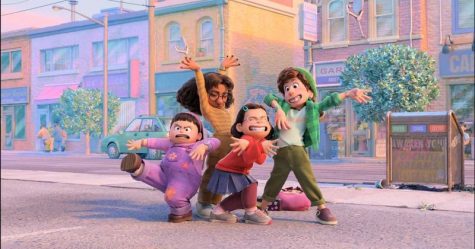
A sonorous 4-part rendition of “Just The Way You Are” on our way out of James Coney Island to Guitar Center, our band of besties often serenade the streets of H-Town with our shamelessly Just-Dance-esque moves, just like Mei Lee and her goofy gang does in a memorable scene of Turning Red. A hilariously relatable yet revolutionary animated Asian feature from Disney, Turning Red reveals the suppressive nature of Asian standards alongside the universal struggle of growing up and discovering how to make others smile while staying true to oneself. Through various current culture nods to boy bands, hair accessories, and beyond, plus the heartbreakingly true unspoken realities, this movie made us cackle, cry, empathize, realize, and krump like an Itzy girl, all in 100 minutes of unfiltered humanity and pure cuteness.
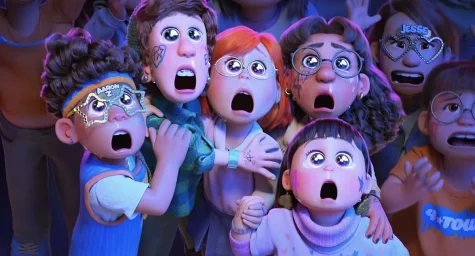
Released on March 11, 2022, via the streaming platform Disney+, the Pixar animation flung the curtains open for a new and overdue leading Asian character, the last dating back to 2009 in Up. Domee Shi, notable for her Academy Award-winning animated short film Bao, directed Turning Red and became the titleholder for the first female director behind a Pixar film. Shi, being the girl boss that she is, not only initiated an era of Asian representation in animation, but set revolutionary milestones with the creation of this relatable, heartwarming film sealed with a colorful bow to appeal to young audiences.
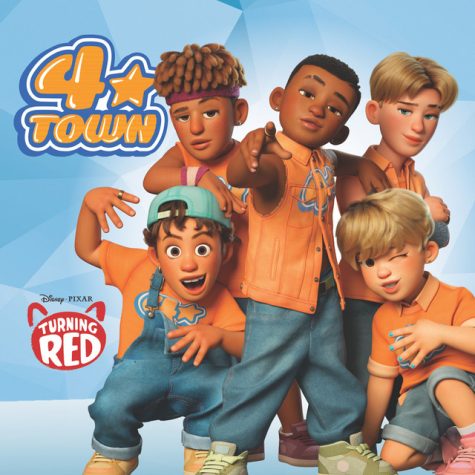
If there were ever a human personification of rainbows, jolly ranchers, and never-ending sunshine, it would have to be Turning Red’s main protagonist, Mei Lee. The plot follows Mei as she tries to constantly maintain her mother’s approval, all while surrounded by the nature of defiance found in the root of adolescence. When she suddenly awakes one day as a huge, red panda—her form controlled by the state of her emotions—Mei’s world is flipped completely upside down as her life of order is now disrupted. Trying to embrace her new rebellious self, Mei and her best friends decide to find any means necessary to attend their favorite band’s concert. Just like Mei, the animation has a bright, energetic aura that blankets the rough realities of dealing with high expectations found in Asian culture, along with balancing life when confronted by the challenges of puberty, or in this case, ‘pandafication.’
When it comes to Asian culture, there are two words that can honestly sum it all up, “family first.” There has always been this sense of collective identity, where if one person fails, everyone is considered to be a failure as well. Of course, this is not true, but it is a common ideology shared between Asian parents. The path leading towards success begins with obeying all demands and wishes no matter what because they “know what’s best for us,” and disagreeing with things suddenly becomes equivalent to disrespect. The pressures of keeping up with the responsibility of maintaining one’s family image and preserving a “close” relationship with Asian parents can not just be stressful but can lose its genuineness when it reaches a certain overbearing extent.
Regardless of race, we all have things that we do, not necessarily out of our desire to pursue it, but simply for our parents’ fulfillment and contentment. For us, that looks like wearing Eurocentric-morphing makeup whenever in public, infrequently hanging out with people outside the family, a billion things in between, and yes, breaking our back to get all A’s while supplying leadership for too many clubs. And the toughest element isn’t having to drag ourselves to scrape enough motivation together to do these recurring tasks, but rather the overbearing weight of having to juggle these endless obligations in addition to the activities we’re passionate about. Just like when Mei Lee angrily puffs into an adorably anxious red panda, from time to time, it’s normal to explode into a panicky mess and feel crushed under the weight of the world because being a teenager can only come with a certain quota of endurance.
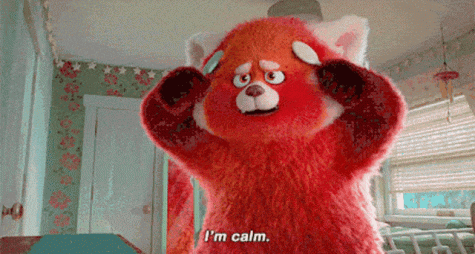
But, also in accordance with Mei, relieving ourselves from exploding can be found in anything, whether it’s letting all the tears out, combing our hair in between long calming breaths, or listening to “The Climb” by our generation’s icon, Miley Cyrus. Even beyond coping techniques, Turning Red reveals how Mei Lee is an embodiment of all our genuine feelings that snowball when dealing with adolescence in a society dominated by demands.
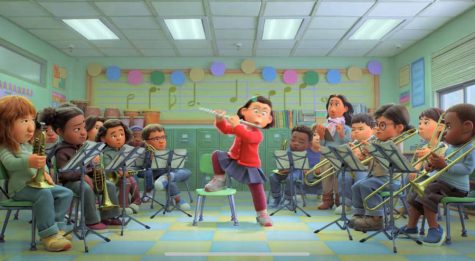
Along with the stereotypical expectations come a whole ‘nother set of unspoken standards we must uphold to avoid being a disappointment. Take music, for instance, which we are super duper passionate about; we’re those kids who regularly flash mob and deliver singing Valentine’s shamelessly. The gleeful story shifts when our parents come into the picture, twisting our relaxing yet discipline-building undertaking into uneasiness for them, unacceptable because Asians and arts occupations simply don’t mix. (‘Tis the saddest truth of the universe.) From the unsettling finances to unguaranteed success, our dream of being the Asian Ariana Grande died at 14. And while Mei Lee always had her eyes set on becoming a STEM queen, an early scene depicted her also creating art, doodling some spicy images of her and a cutie from the corner store, which, of course, she tried to hide from her parents. A horrifying event subsequently unraveled when her mom discovered her drawings and exploded, confronting the corner store boy, who had never even talked to Mei. This illustration of what Asian (and really, any) parents can do, while dramatized, is at the forefront of many a mind, sparking shivers for the terrors that will come if you do anything outside of the perfect child outline, an unfortunately indispensable ingredient to Asian portrayal.
Although the plot was quite predictable and linear, Turning Red did what other animation films could not, which was going past the surface when it comes to representing Asian culture. Yes, there were moments where we had to cringe with Mei because of the embarrassing moments she experienced, such as when her mother pointed out she forgot her sanitary pads in front of the whole school. But the relatable details, namely Lee’s genuine liking for cleaning, her obsession with K-pop, feeling the need to keep up with perfect grades, her unwavering relationship with ancestor worship, and simply, the guarantee her family members were always there to help her no matter the situation, outweighed the simplicity the plotline carried.

With a rightfully generous rating of 5 out of 5 stars, Disney’s newest Asian-American feature has something valuable for every viewer, exploring the balance between tradition and individuality during the amusingly turbulent teenage years. So don’t forget to dress up in the iconic “ready-to-gossip Asian auntie” look, decked out in a glamorous tracksuit, deceptively designer handbag, and anti-aging sunglasses, and grab your popcorn (and any Asian snack of choice) before watching Turning Red on Disney+ today!
Your donation will support the student journalists of Carnegie Vanguard High School. Your contribution will allow us to cover our annual website hosting costs and fund field trips, competition fees, and equipment. We appreciate your support!

Hewwo there! I'm Caitlin, I am a junior, and I love singing and playing guitar w my lil bro, as well as helping people :]

Nina Nguyen connects with the color orange on an emotional level and goes to a great extent to make it her whole personality. When it comes to music, Nina...


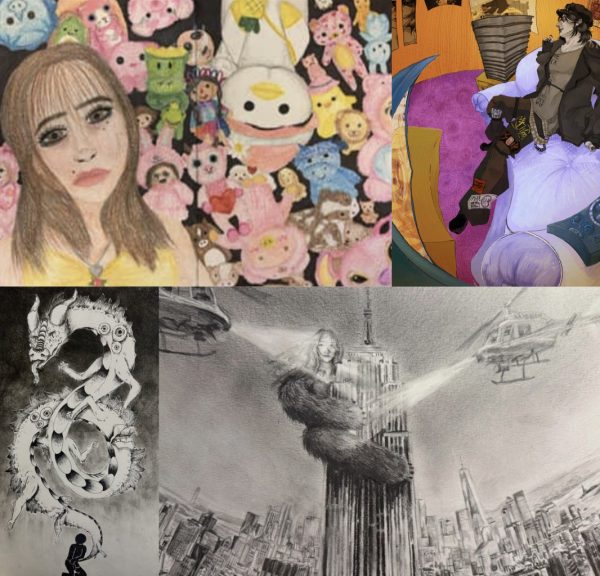


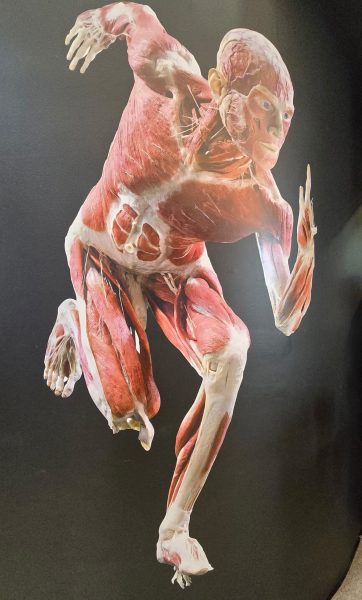

MyTran Vo • Apr 19, 2022 at 2:08 pm
I loved all the media you added!